Mississippi divorce records can be obtained online at no cost; all that’s required is the knowledge of the agencies that keep and share this data.
The recorded files usually contain the names of divorced individuals, as well as when the separation was finalized. Depending on circumstances, it may also provide further information about asset division or instances of domestic violence.
These accessible records equip residents with vital resources that help verify someone’s divorce status through certified databases run by state, county, and city authorities within the state of Mississippi.
Are Divorce Records Considered Public Records in Mississippi?
In Mississippi, divorce records fall under the public domain thanks to the Mississippi Public Records Act of 1983, specifically in sections § 25-61-1 and § 25-61-2.1 This law mandates that such annulment documents stay open for public viewing, barring any exceptions granted by the act itself.
Divorce records are categorized as court records, which means their access is, in general terms, public. However, rights to getting copies of these divorce records can differ. For instance, getting certified copies stays exclusive only to those people whose names appear in divorce proceedings.
Others who want to get these certified records must show proof of kinship, plus signed agreements from divorced persons named inside those very files.
In divorce records, certain particulars like financial data, social security details, minors’, names, and custody specifics remain decidedly confidential and not open to all citizens. Those desiring a look at these papers need specific court orders granting permission.
The U.S. divorce rates data provided by the CDC shows quite an interesting trend in Mississippi though, as it stood at 3.3 per thousand individuals in 2021. Compared to ten years ago, this rate has significantly dropped, as before it was higher at 4 divorces for every thousand citizens.
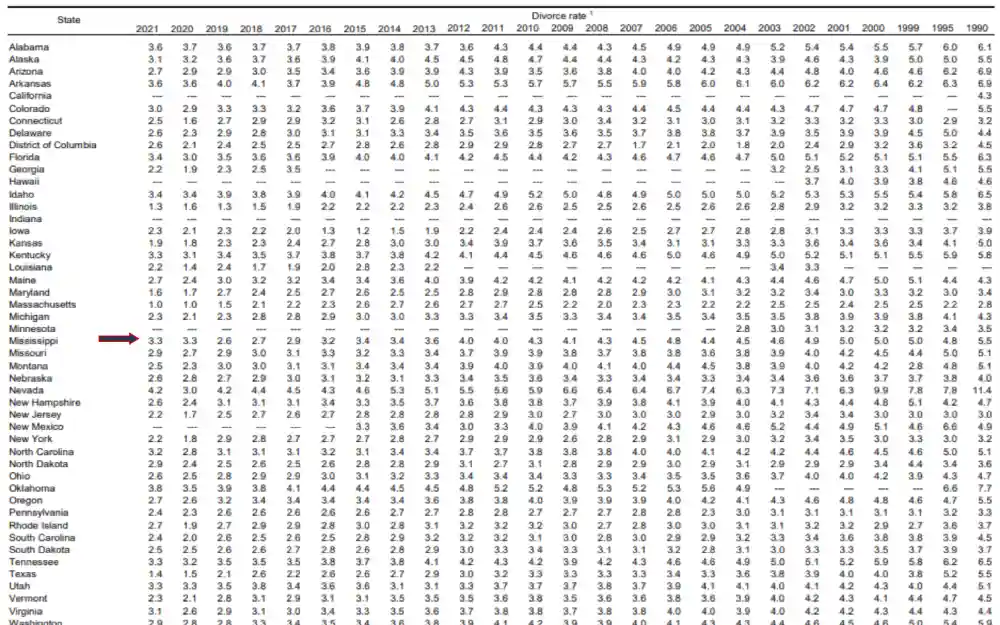
How To Access Mississippi Divorce Records for Free
Record seekers can access the state records through a search tool provided by the Mississippi state judiciary.
This is done via the Mississippi Electronic Courts (MEC) system. Public viewers can view files from various courts, like the Supreme Court, Court of Appeals, and Chancery courts, along with those held by local courts under different municipal jurisdictions.
However, in order to successfully use MEC, requesters need to find out in which county and court the desired records are available. Once this is known, applicants can choose the right court from a drop-down menu present on MEC’s homepage.
From there on, users are first required to register at the MEC’s signup platform.3 After this, they are automatically directed toward the selected court or district’s file submission portal.
This registration demands a nominal $10 subscription fee due annually, which can be remitted either by card or check. After registering, individuals gain access to their login info for future reference.
Divorce decrees and whole records can also be accessed from the Offices of Mississippi Chancery Court Clerks. To get a copy of these records, citizens need to pay a visit to the courthouse where the divorce was ruled.
It’s worth noting that these clerks encourage requests made via mail, phone or even fax for access to any divorce record. Their contact data is easily available in the Chancery Court Clerk Directory.
The following details are required when you reach out with this request:
- Each divorced party’s full name.
- Date when divorce got finalized.
- County name where the divorce took place.
- A legitimate photo I.D. of the person requesting information.
- Contact points for requesters, which includes both mobile numbers and mailing address.
People requiring certified copies must fit into the criteria of being immediate family members or named representatives on a couple’s behalf.
Individuals not falling under the above categories may acquire non-certified copies only. These copies do not have official state seals, so these will serve no legal purpose whatsoever.
The Mississippi Department of Health’s Vital Records office does not keep any record of divorce documents.4 However, they do provide an alternative route that allows conducting a five-year search on a county-based divorce index within a specified timeline between January 1st, 1926, and June 30th, 1938, accompanied by another period starting on January 1st, 1942, to present. This search is available for a nominal fee of $17.
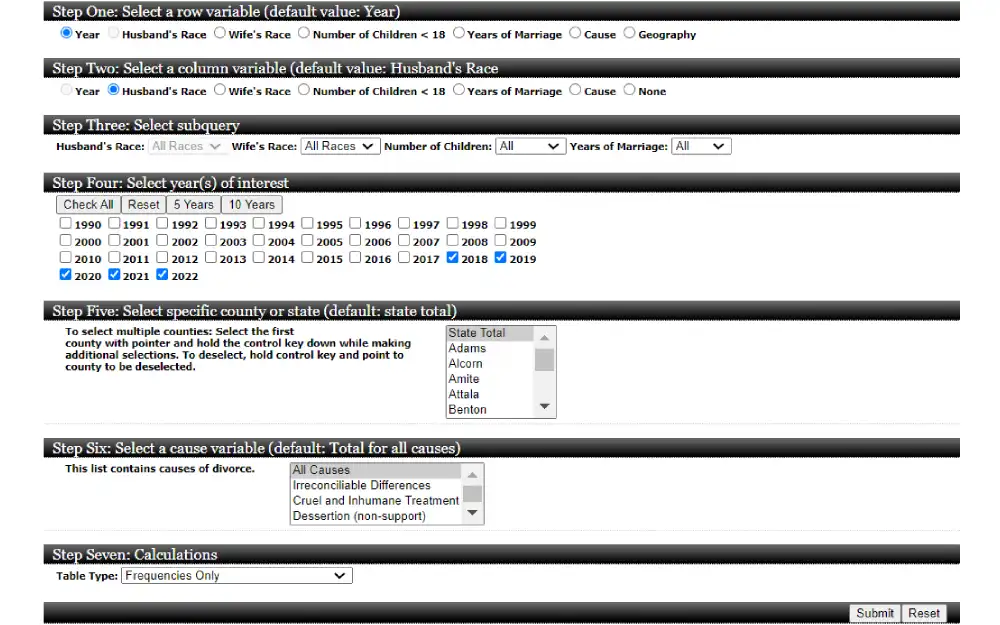
For those who prefer going digital, there are a host of third-party websites offering services to check divorce records as well.
Searching Counties & Cities for Free Divorce Records (MS)
Starting the search for MI divorce records with the Department of Health’s Vital Records can only yield results regarding indexes and is extremely useful if the exact county where the divorce occurred is not known. However, should the county be known, the recommended path would be to contact that respective county’s Chancery Court Clerk’s Office.
Hinds County: In Hinds County, individuals can appeal directly to the Chancery Clerk’s office if the divorce ends there. A county-level search has its perks – it can yield results quickly and provide more comprehensive details.
Divorce records for Hinds County can be found through their online Public Records Application form, which offers access to the county records.6
Interested individuals need to fill out sections that require the respondent’s name, email address, and phone number, along with data on particular records being asked. However, viewing these records comes at a cost, and requesting additional copies will incur a per-page fee. The fee is charged by calculating the time and effort required to find the records and, thus differs for each request.
Requesters can also acquire a divorce certificate by either showing up at the Hinds County Chancery Clerk’s Office in person or mailing the offices stationed throughout the district, as outlined below with their locations and contact details:7
First Judicial District Office of Chancery Clerk
316 S. President Street
Jackson, MS 39201
Mailing address:
P.O. Box 686
Jackson, MS 39205-0686
Phone: 601-968-6508
Office hours: 8:00 a.m. – 5:00 p.m. Monday – Friday
Second Judicial District Office of Chancery Clerk
Main Street, Annex Building
Raymond, MS 39154
Mailing Address:
P.O. Box 88
Raymond, MS 39154
Phone: 601-857-8055
Office hours: 8:00 a.m. – 5:00 p.m. Monday – Friday
Harrison County: In Mississippi’s Harrison County, the public records maintained are available for examination and copies in the Chancery Clerk’s office during regular county working hours.8
Individuals interested in obtaining these records must fill out the Public Records Request form, submit it via email at [email protected], or deliver it to the Minutes Clerk office situated within the Harrison County Chancery Clerk’s office at the following address:
Chancery Clerk’s Office
Harrison County Courthouse
1801-23rd Avenue, Gulfport, MS.
Office Hours: 8 a.m. – 5 p.m. Monday – Friday (excluding holidays)
After receiving the request, the county usually draws a response timeframe within 7 working days, along with providing cost estimates involved in searching, copying, plus reviewing the particular record files.
Copying the documents will be billed at $0.50 per page plus any extra costs covering search and review. Mailing these divorce records to the requester will invite postal charges as well. Payment must be provided before any release of the records.
Payment methods include checks, cash, or money orders, payable to the Harrison County General Fund.
DeSoto County: When considering DeSoto County for divorce records, individuals need to route their requests through a Public Records Request Form directed to the county Board of Supervisors Office desk at the following address:9
DeSoto County Board of Supervisors
365 Losher St, Suite 300
Hernando, MS 38632
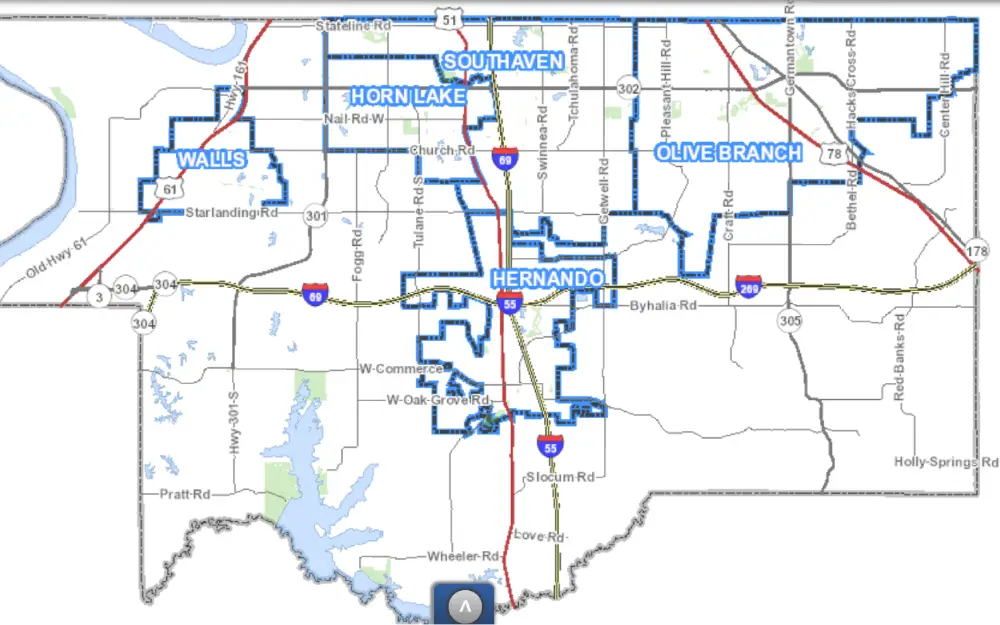
After receiving the form, the governing authority or applicable department head responds in writing within 7 business days. If copies are needed, applicants should expect charges per page, although costs will escalate if the actual cost of copying surpasses initial estimates.
Certified copies come with additional fees as highlighted by the county’s Public Records Request Policy. Around $3.00 is charged for the first page and $1.00 each for every extra page. Payments can be made in cash, check (barring foreign checks), cards, both credit and debit, along with money orders.
For card users, there is an added 2.5% convenience fee in addition to the above charges.
Jackson City: In Jackson City, Mississippi, citizens can submit their public records requests in writing, as per the City’s Public Records Policy.11 This not only simplifies but also safeguards the interests of the requester. For convenience’s sake, an online record request form is made available on their website.
However, for those who prefer a more traditional approach, personal submissions via a public computer are also available at the Municipal Clerk’s Department, located on the ground floor within City Hall premises. Interested individuals can visit the Municipal Clerk’s office at the following address:
Department of Municipal Clerk
219 S. President Street
Jackson, MS 39201
Phone: (601)960-1035
Office Hours: 8 a.m. – 5 p.m. Monday – Friday
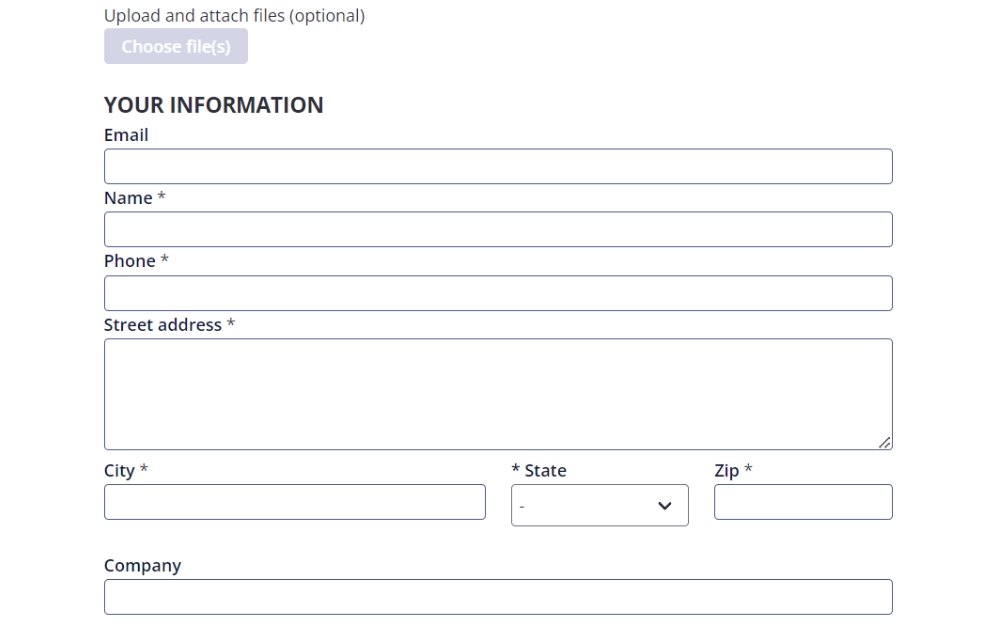
Photocopies of the records are priced at $0.15 per page, while certified copies come at a slightly higher rate of $1.50. Payment must be made before any release of the records. This is in line with the requirements listed under both the Mississippi Public Records Act of 1983 and the aforementioned policy by the city administration regarding accessibility.
Once the payment clears, nonexempt public records can be expected to be delivered promptly within seven working days from the date of payment receipt.
Gulfport City: In Gulfport, to access divorce records, the public must complete a specific Records Request Form. Essential details like the name of either one of the divorce parties and the Social Security Number of the subject are necessary. Requesters must also mention how they want these files delivered, along with the type of records needed.
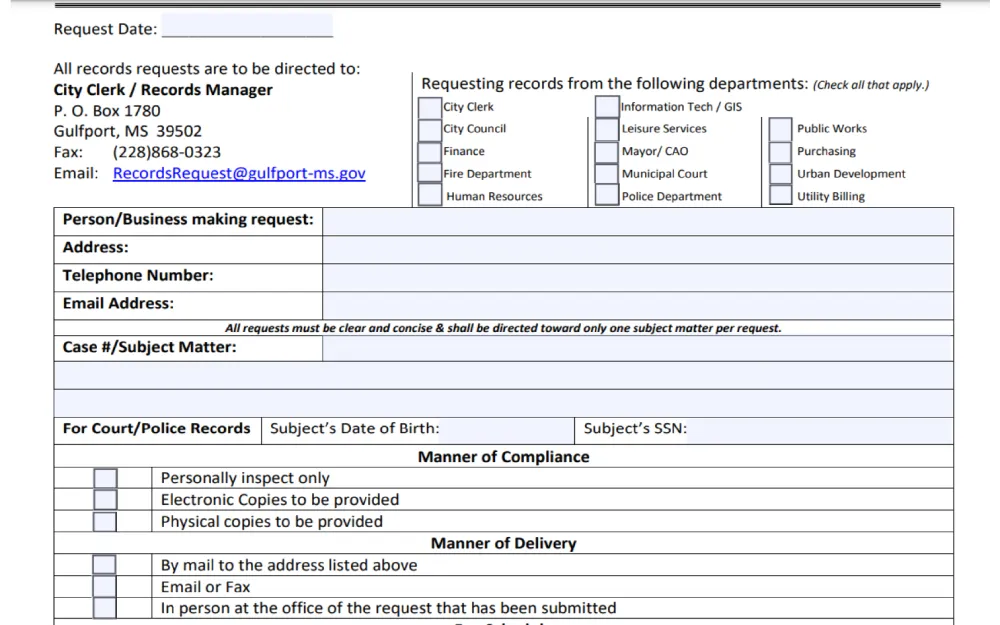
An hourly rate of $17.50 covers searching, scanning, or duplicating costs, but bear in mind additional page-wise copying charges. These come at a cost of $0.25 per page and exist separately as well. Payment through money orders, debit/credit cards, checks, or cash are accepted.
Southaven City: Moving on to Southaven City’s procedure – similar rules apply when filling out a detailed Public Records Request form. The form is directed toward the city clerk and requires key personal data like the requester’s name, phone number, and email I.D., alongside specifics about the documents asked for.
Requesters must also highlight whether they simply want to review the document at the clerk’s office or require actual copies of said files.
A response is expected within a week from the submission of the form. As for pricing, an hourly rate ($20 per hour) is charged, covering all search-related activities. Any extra copies would be charged in addition to the above.
The pricing starts at $0.25 for monochrome pages, while colored ones draw $.50 each for a standard 8 ½ x 11 sized page. However, costs can potentially rise if copies exceed standard size measurements.
For individuals interested in the state’s divorce records for genealogical or family history research, these documents are maintained at state and national archives. Private institutions that preserve such paperwork could also be viable resources to consider. Find more information on these historical options below.
Tracking Family Heritage & Genealogy Through the Divorce Archives of Mississippi
The Mississippi Department of Archives & History (MDAH), established in 1902, serves as the official archive for the state. Starting its journey as an offshoot of the Mississippi Historical Society, it aims to nurture Southern identity by safeguarding historical records.
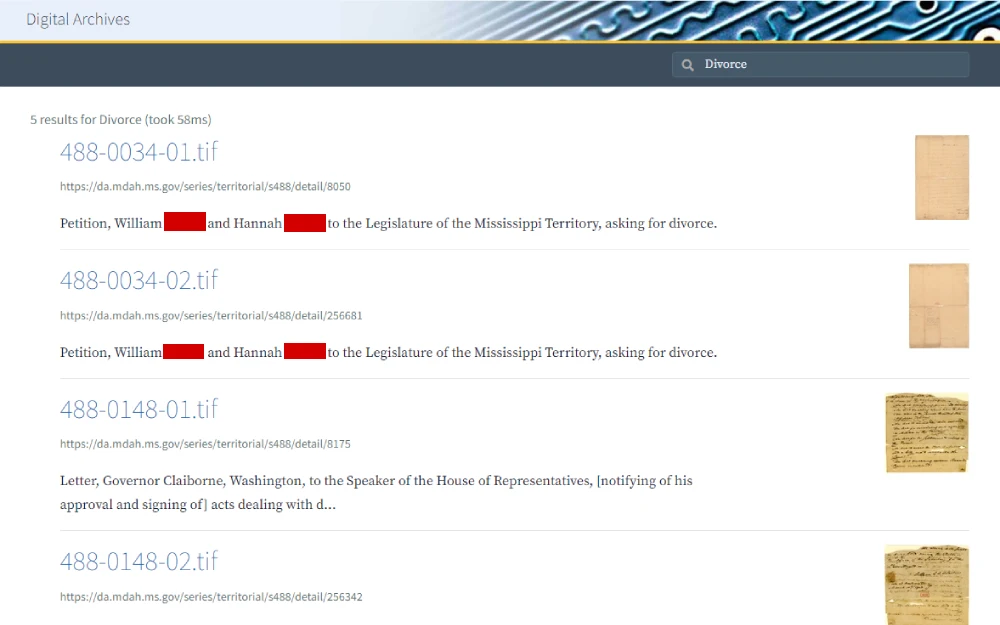
Their collection includes hundreds of court cases pertaining to the High Court of Errors and Appeals (the predecessor of the State Supreme Court). These chosen case files possess noteworthy genealogical information and were indexed by Mary Flowers Hendrix and published extensively in her literature named ‘Mississippi Court Records 1799–1859’.
Their online catalog provides convenient search options, enabling users to access their extensive database with ease.
However, while the MDAH does host a good amount of collections available online, there are many more that require physical presence at the William F. Winter Archives & History Building located in Jackson.
William F. Winter Archives & History Building
200 North Street
Jackson, Mississippi 39201
The MDAH provides a free public divorce records search tool that contains basic and advanced search features to let people filter through records. Under the basic search option, individuals can input certain information like name, case number, or specific year to narrow down their search. The advanced search feature lets individuals tap into keywords while pinning down particulars associated with required court records.
Apart from the above, there is also the digital archives section, where inquirers can browse archives, along with accessing the complete range of their comprehensive catalog. For physically looking up records at the MDAH, prior payment is required for all services and products. Physical records can be viewed by visiting the MDAH at the following:
Mississippi Department of Archives & History
200 North Street
Jackson, Mississippi 39201
Office Hours: Monday-Friday 8 a.m. – 5 p.m.
Only money orders and checks are acceptable, as MDAH does not entertain electronic transfers. For plain paper copies, each page costs $0.20 to reproduce, with staff handling the process for archival materials and certain specific formats.
Extra charges do apply where special handling is necessary, while expedited service gets added as well under certain situations – both adding an extra fee per page of around $0.25, respectively. Obtaining certification copies further bumps up the cost by adding $.50 per document’s page.
Inquirers can also check the National Archives or Federal Record Center, which hosts abundant court records from Mississippi.15 Nonetheless, individuals don’t need to restrict themselves here, as inquiring from family members, searching church archives, looking at vintage photographs or even archived newspaper pieces can prove beneficial.
How To Look Up Common Law Divorces & Dissolutions of Marriage in Mississippi
Common law marriages have been deemed invalid in Mississippi since 1956. Not only are such unions considered illegal, but the state also does not recognize domestic partnerships or civil unions. For matrimony to be legally recognized in Mississippi, a marriage license is required.
Living together unmarried and engaging in sexual relationships could lead to charges of unlawful cohabitation as per Mississippi Code Title 97. Crimes § 97-29-1. Property rights do not exist for these couples should they part ways or face the untimely death of one partner. However, common law marriages created legally outside the state are recognized within Mississippi under Full Faith & Credit Clause adherence across U.S. states.16
Common law marriages established outside of Mississippi demand legal divorce for rightful dissolution within the state. Since Mississippi recognizes these unions formed outside, the state laws shape common law divorces, too.
Both partners can opt for self-representation or hire legal representatives for this process, but if there is a pre-marriage agreement then it eases things further. Matters involving division of property, child care responsibilities or support money all hinge upon earlier mentioned agreement clauses.
Dissolution of marriage within Mississippi essentially means ‘no-fault’ divorces, proving irreconcilable differences leading towards an end. A divorce also leads to the same outcome, but there is a slight difference in the processes of both.
Individuals should reach out directly to the court clerk of the county where the dissolution took place to access the records. The request can be made directly via mail, phone, or fax. Contact information for each respective Chancery Clerk can be obtained from the Chancery Court Clerk Directory.
How To Navigate the Mississippi Divorce Process: Filing & Addressing Petitions
In Mississippi, the divorce process can be started by any spouse. Depending on which role the individual falls into (plaintiff or defendant), procedures might change a bit. However, the divorce process can only be started if the individual is a Mississippi resident for at least 6 months (Miss. Code Ann. § 93-5-5).
If starting the divorce process, first determine the grounds for separation which are outlined in Miss. Code Ann. § 93-5-1; it could be no-fault based attributed to “irreconcilable differences” or fault-based ones such as adultery or habitual cruelty among others.
Following this step involves filing a formal complaint in the Chancery Court of the county where either party currently resides mentioning all claims related to children’s custody, alimony needs, and division of property if required. These documents are also to be mailed to the other party via certified mail service.
After delivery, both parties are required to wait for a period of 30 days, as outlined in the Mississippi Rules of Civil Procedure. Any absence here from the respondent opens a window for potential default judgment favoring the plaintiff. During this period the couple can also enter negotiations and attend mediation trials.
However, if these prove unsuccessful, then court hearings begin and the judge delivers the final verdict.
When served with divorce papers, it becomes essential to study the received court documents extremely carefully. The entire procedure demands a definite response within a permissible timeframe (typically the standard 30 day duration).
In Mississippi, initial paperwork costs for a simple divorce run at approximately $52.00 in court charges. However, if one considers a contested situation in a divorce scenario then overall expenses can rise significantly due to the inclusion of attorney fees and other services altogether averaging between the range of $15,000 – $20,000 and possibly more.
Time-wise, divorce proceedings can pose an ever-varying spectrum stretching from 60 days for uncontested divorces to several months in some cases of disputed divorce.
From initiating the procedure to hiring legal aid, either route anyone finds themselves in, it is crucial to be familiar with Mississippi’s divorce process. This way, citizens can better navigate through the complexities involved and make informed decisions that will help secure their interests. Once the verdict is given, it becomes a part of Mississippi divorce records and individuals can follow the processes outlined in this article to acquire them.
To access additional record types on individuals of interest throughout the state, you can refer to the MS marriage record search instructions or conduct a free Mississippi public information lookup for detailed guidance on accessing court records, birth and death documents, criminal history background check reports, and much more.
References
1Mississippi Ethics Commission. (n.d.). Title 25, Chapter 61, Public Access to Public Records | Mississippi Ethics Commission. Mississippi Ethics Commission. Retrieved November 15, 2023, from <https://www.ethics.ms.gov/thepublicrecordact>
2Centers for Disease Control and Prevention. (n.d.). Divorce Rates by State: 1990, 1995, and 1999-2021. CDC. Retrieved November 15, 2023, from <https://www.cdc.gov/nchs/data/dvs/marriage-divorce/state-divorce-rates-90-95-99-21.pdf>
3Mississippi Electronic Courts. (n.d.). MEC System. Mississippi Electronic Courts system. Retrieved November 15, 2023, from <https://www.pamecapps.mec.ms.gov/onlinereg/>
4Mississippi State Department of Health. (2023, February 14). Divorce Records – Mississippi State Department of Health. Mississippi State Department of Health. Retrieved November 15, 2023, from <https://msdh.ms.gov/msdhsite/index.cfm/31,0,109,810,html>
5Mississippi State Department of Health. (n.d.). Customize Data Table. MSTAHRS. Retrieved November 16, 2023, from <https://mstahrs.msdh.ms.gov/forms/divtable.html>
6Hinds County Mississippi Board of Supervisors. (2022). Public Record Request Form. Hinds County. Retrieved November 15, 2023, from <https://www.hindscountyms.com/public-record-request-form>
7Carr, E. J. (2022). Chancery Clerk. Hinds County. Retrieved November 15, 2023, from <https://www.hindscountyms.com/elected-offices/chancery-clerk>
8Harrison County, Mississippi. (2022). MS. Harrison County, MS. Retrieved November 15, 2023, from <https://harrisoncountyms.gov/how_do_i_/obtain/index.php>
9DeSoto County Mississippi. (n.d.). Chancery Court Records. DeSoto County, MS. Retrieved November 15, 2023, from <https://desotocountyms.gov/675/Chancery-Court-Filing-Fees>
10DeSoto County, Mississippi. (n.d.). GIS Map. MS – OneView. Retrieved November 16, 2023, from <https://gis.desotocountyms.gov/oneview/>
11Jackson Mississippi Department of Municipal Clerk. (n.d.). Public Records Policy. The City of Jackson Mississippi. Retrieved November 15, 2023, from <https://storage.googleapis.com/proudcity/jacksonms/uploads/2020/08/Public_Records_Policy_7-21-20.pdf>
12The City of Jackson, Mississippi. (n.d.). Open Public Records. The City of Jackson. Retrieved November 15, 2023, from <https://cityofjacksonms.nextrequest.com/requests/new>
13Gulfport Mississippi. (n.d.). City of Gulfport Public Records Request Form. Gulfport Police Department. Retrieved November 15, 2023, from <https://www.gulfport-ms.gov/wp-content/uploads/2020/11/2019RecordsRequest.pdf>
14Mississippi Department of Archives & History. (2020). Digital Archives. Mississippi Department of Archives & History. Retrieved November 15, 2023, from <https://da.mdah.ms.gov/search?squery=Divorce>
15National Archives. (2023, April 6). Resources for Genealogists and Family Historians | National Archives. National Archives |. Retrieved November 15, 2023, from <https://www.archives.gov/research/genealogy>
16Constitution Annotated. (n.d.). Historical Background on Full Faith and Credit Clause | Constitution Annotated | Congress.gov | Library of Congress. Constitution Annotated. Retrieved November 15, 2023, from <https://constitution.congress.gov/browse/essay/artIV-S1-2/ALDE_00013016/>
